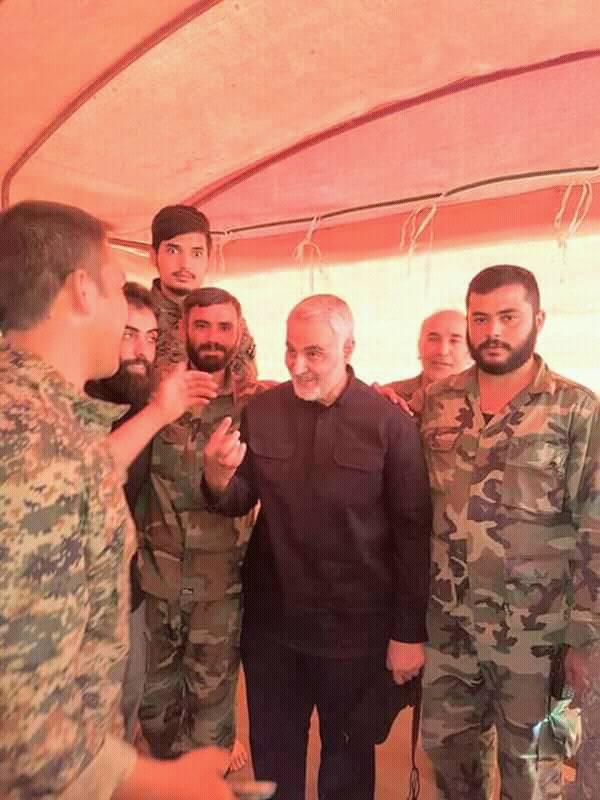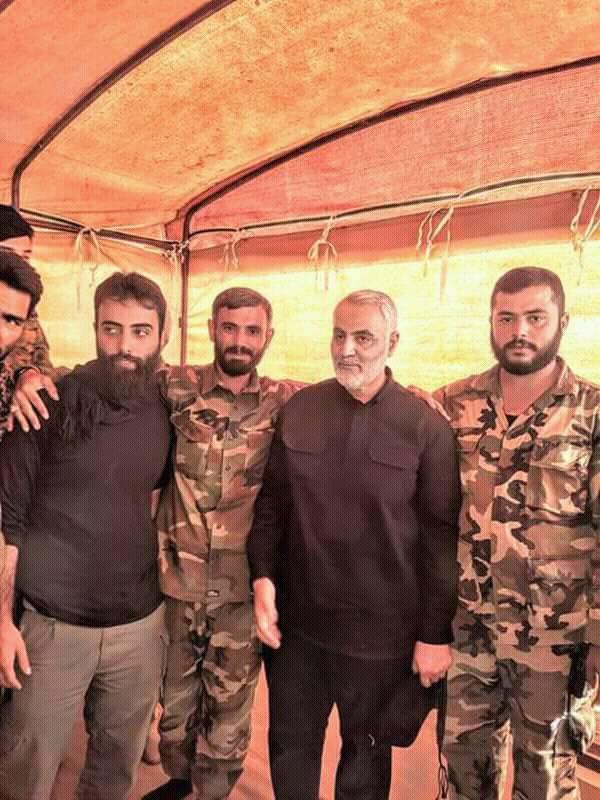On Friday, the “western press” started to set the stage for war between Lebanon (and Iran) and Saudi Arabia (and Israel).
First, it was the third reminder in a row that, despite no presentation of evidence, the ballistic missile that was fired last Saturday by Houthi rebels in Yemen, and supposedly meant to strike the Riyadh airport before it was intercepted by Saudi defense forces, the ballistic missile belonged to Iran. As the AP reported this morning, “the ballistic missile fired by Yemeni rebels that targeted the Saudi capital was from Iran and bore “Iranian markings,” the top U.S. Air Force official in the Mideast said Friday.” Lt. Gen. Jeffrey L. Harrigian, who oversees the Air Forces Central Command in Qatar and made the comments at a news conference in Dubai, declined to offer any specifics on what type of missile they believed it was.
It was unclear what, exactly, constitutes “Iranian markings”: perhaps – we mused – a stamp on the side saying “this ballistic missile was made in Iran, if found please return to PO Box 666, Tehran.”
Ultimately, it was irrelevant, because just a few hours later, a far more provocative report was published by the BBC, according to which Iran is establishing a permanent military base inside Syria, citing a Western intelligence source. The report, predictably, comes amid growing tensions over Iranian influence in Syria and across the region, and as the Saudi-Israel “alliance” is desperate to find a pretext to begin war.
As the BBC adds, the Iranian military is said to have established a compound at a site used by the Syrian army outside El-Kiswah, 14 km (8 miles) south of Damascus.
Needless to say, for Israel this would constitute the crossing of a “red line” by Iran: Israeli PM Benjamin Netanyahu recently warned that Iran wanted to establish itself militarily in Syria. “Israel will not let that happen,” he said.
Satellite images commissioned by the BBC “seem to show” construction activity at the site referenced by the intelligence source between January and October this year. The images shows a series of two dozen large low-rise buildings – likely for housing soldiers and vehicles.
According to the satellite images, in recent months additional buildings have been added to the site. However, the BBC at least concedes that it is impossible to independently verify the purpose of the site and the presence of the Iranian military. Still, that did not prevent someone, arguably the CIA, to “conclude” what is going on.
An official from another Western country told the BBC that ambitions for such a long-term presence in Syria would not be illogical for Iran. Its adversaries have accused Iran of seeking to establish not just an arc of influence but a logistical land supply line from Iran through to the Shia Hezbollah movement in Lebanon. With so-called Islamic State having sufffered terminal defeats on the battlefield and losing its last strongholds, attention is increasingly turning to what comes next and the new map of power and influence in Syria.
This means focusing on Iran.
Iran has been a consistent backer of the regime of President Bashar al-Assad. Photographs published on social media in the past few days also showed a senior Iranian general in Deir Ezzor shortly after IS was driven out of the town. The photos show Maj Gen Qasem Soleimani, head of the Quds force of the Islamic Revolution Guards Corps (IRGC) alongside members of a militia.
With a significant number of IRGC fighting – and in some cases dying – in Syria, there has already been a significant presence in the country but the question is now whether they are preparing to remain in the long term.
Going back to the satellite images of the alleged base, they do not reveal any signs of large or unconventional weaponry which means if it was a base it would most likely be to house soldiers and vehicles. One source said it was possible that senior Iranian military officials may have visited the compound in recent weeks. Independent analysis of the images commissioned by the BBC says the facility is military in nature. The analysis also suggests there are a series of garages that can hold six to eight vehicles each.
The analysis suggests new buildings have been constructed and other buildings renovated in the past six months although the exact role of the new structures cannot be determined. Analysts estimate up to 500 troops could be based at the site. Furthermore, it is not clear whether the facility is currently occupied. Shia fighters from other countries – including Pakistan and Afghanistan – are also alleged to be operating in Syria under the control of the IRGC and it is possible the base could be used by them, however for the purposes of the loudly beating wardrums which demand a war with Iran soon, that would not be practical.
According to the developing narrative, while the presence of Iranian forces in Syria has been reported for some time, the claim of a potentially more permanent Iranian base raises the possibility of military action by Israel which has repeatedly warned it will not tolerate such a development.
Assuring that when once confirmed the base belongs it Iran Netanyahu will be forced the respond, the base lies just about 50 km from the Golan Heights – Syrian territory occupied and then annexed by Israel and where it now has a significant military presence.
And just to underscore that Iran is now the new ISIS, Netanyahu tweeted on Sunday that “As Isis [IS] moves out, Iran moves in.”
“Iran wants to establish itself militarily in Syria, right next to Israel. Israel will not let that happen,” he added.
In an interview on the BBC’s Andrew Marr show on the same day he said Iran wanted to bring its air force and submarines as well as military divisions right next to Israel.
Israel has raised further concerns of Iran seeking to use Syrian ports and bases for its submarines. When asked whether Israel would use military force to stop such developments, Mr Netanyahu told the BBC: “You know, the more we’re prepared to stop it, the less likely we’ll have to resort to much greater things. There is a principle I very much adhere to, which is to nip bad things in the bud.”However, international pressure is likely to be the first avenue pursued by Israel. Other countries have also raised concerns over potential long-term Iranian presence in the region.
It’s not just Israel whose opinion matters, however.
The issue of potential Iranian military bases is likely to have been raised by Israeli officials with Syria’s ally Russia. In October, Russia’s defence minister was in Jerusalem and was told by Netanyahu that Israel would not allow the Iranian military “to gain a foothold in Syria”, according to reports at the time.
While it is not clear how that conversation ended, last week Russian President Vladimir Putin visited Iran and Russian media suggested Syria – including Iran’s influence in the country – would be on the agenda.
Finally, closing the loop on the recent escalation in tensions between Saudi Arabia and Lebanon, over the past year, the Israeli air force has struck targets in Syria a number of times which it has linked to Hezbollah.
And with that one base – which may or may not belong to Iran – the media now has the narrative “alibi” it will need to push for popular support for the Israel-Saudi axis in the upcoming military conflict against Iran and Lebanon.
Meanwhile, earlier this week, Reuters reported that Iran’s president Hassan Rouhani said Saudi Arabia had made a “strategic mistake” by considering the United States and Israel as friends and Iran as an enemy. The next few weeks should confirm if he is correct.





Comments
Post a Comment